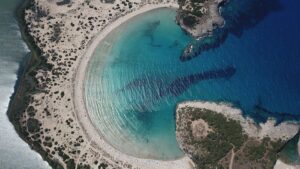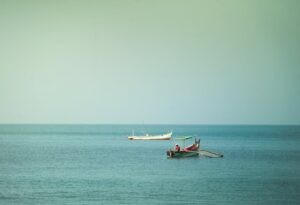Traveling sustainably: Minimizing our impact on marine life
Greetings, fellow travelers! As someone who loves to explore the world, I am always in awe of the beauty and diversity of marine life. From colorful coral reefs to majestic whales, the ocean is home to some of the most fascinating creatures on our planet. However, our actions as travelers can have a significant impact on these fragile ecosystems. As responsible travelers, it is our duty to minimize our impact on marine life and preserve it for generations to come. Here are some simple ways we can do our part while traveling.
Choose eco-friendly accommodations
When planning your trip, consider staying at eco-friendly accommodations that have implemented sustainable practices. These can range from small locally-owned guesthouses to luxury resorts. Look for certifications such as Green Globe or Rainforest Alliance, which ensure the property is committed to environmental and social responsibility. Such accommodations often have measures in place to reduce their waste and energy consumption, as well as support local marine conservation efforts.
Say no to single-use plastics
We all know the devastating impact of plastic on our oceans. Every year, millions of marine animals die due to plastic pollution. As travelers, we can reduce our plastic usage by carrying a reusable water bottle, utensils, and cloth bags. Refill your water bottle at water stations or ask restaurants and cafes to fill it up for you. Say no to plastic straws and carry your own reusable one if needed. These small changes can make a big difference in keeping our oceans clean and safe for marine life.
Choose responsible tour operators
Many marine activities, such as snorkeling, diving, and whale watching, are popular among travelers. However, it is essential to choose responsible tour operators who prioritize the well-being of marine life. Do your research and opt for companies that have a strict code of conduct and follow responsible practices, such as maintaining a safe distance from marine animals and not disturbing their natural behavior. Avoid tours that offer activities like swimming with captive dolphins or feeding marine animals, which can harm their health and disrupt their natural habits.
Dispose of waste properly
Proper waste management is crucial in protecting marine life. Always dispose of your waste in designated bins and do not litter. If you are in a remote area with limited waste disposal facilities, take your trash with you until you find a proper place to dispose of it. This includes cigarette butts, which contain harmful chemicals that can harm marine animals if ingested. Remember, whatever waste we leave behind can end up in the ocean, harming marine life.
Choose sustainable seafood options
Seafood is a staple in many coastal destinations, but overfishing and unsustainable fishing practices can lead to the depletion of marine life. When dining out, opt for sustainable seafood options, such as those recommended by the Marine Stewardship Council. These options have been caught or farmed in an environmentally responsible way, ensuring the long-term health of our oceans and marine life.
Respect marine life and their habitats
As travelers, it is essential to respect the natural habitats of marine life. When snorkeling or diving, avoid touching or disturbing coral reefs and marine animals. These are delicate ecosystems that can take years to recover from even the slightest damage. Be mindful of your actions and do not take anything from the ocean, including shells or souvenirs made from marine life. These items can have a significant impact on the ecosystem and the animals that call it home.
Support local marine conservation efforts
Many coastal communities depend on marine life for their livelihood. By supporting local marine conservation efforts, we can help these communities thrive while protecting their environment. You can do this by participating in beach cleanups, volunteering with local organizations, or donating to marine conservation projects. By actively contributing to these efforts, we can make a positive impact on marine life and the communities that rely on it.
As travelers, we have the power to make a difference and protect our oceans and marine life. By following these simple tips, we can minimize our impact and leave a positive footprint on the places we visit. Let’s travel responsibly and preserve the beauty and diversity of our oceans for generations to come. Happy travels!




